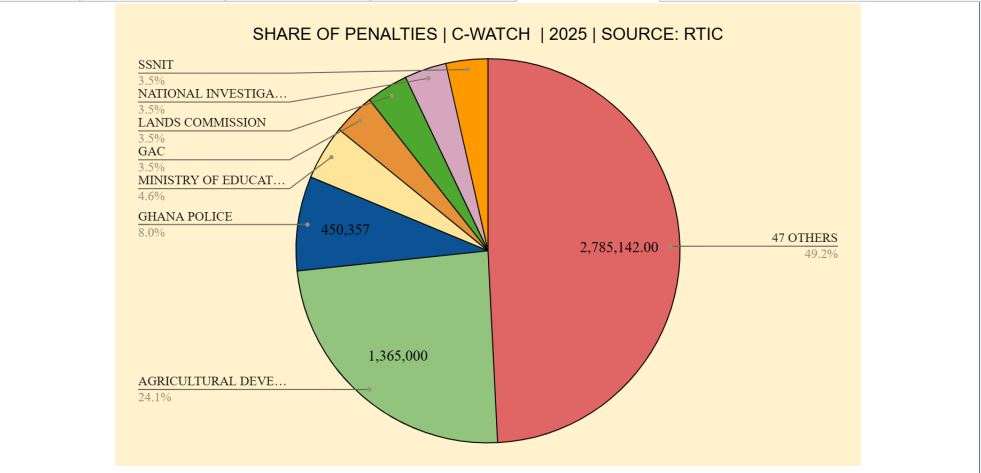State institutions continue to struggle with compliance under Ghana’s Right to Information (RTI) law, with some of the country’s key governance bodies repeatedly failing to provide citizens with legally requested information.
Investigations by Corruption Watch show that the Ministry of Education has received the highest number of penalties, with four separate fines for breaching the RTI law. The Ghana Police Service follows closely with three penalties, underscoring persistent compliance issues among major state institutions.
Other top offenders by value include the Agricultural Development Bank (GHS 1.365 million), SSNIT (GHS 200,000), and the Lands Commission (GHS 150,000), though the frequency of penalties paints a sharper picture of repeated non-compliance.

Overall, 23 institutions have paid fines totaling GHS 3.5 million, while 36 others owe a combined GHS 2.149 million in unpaid penalties, exclusive of interest and ongoing litigation. Municipal assemblies also feature prominently, with the Accra Metropolitan Assembly owing GHS 50,000.
Legal experts warn that fines may have limited deterrent effect without personal accountability for institutional heads. Zakaria Tanko Musah, a private legal practitioner, said:
“If you fine an institution, that money is not going to come from the person who willfully refused to provide you with the information…They don’t suffer any embarrassment, per se.”
RTIC Executive Secretary Shirley Lartey emphasised that the Commission’s priority remains ensuring access to information for citizens:
“…we will ensure that you provide the information being requested.”
Data from the RTIC also shows a worrying slump in RTI approval rates, dropping from 85.44% in 2022 to 70.04% in 2023, while rejection rates jumped from 4.60% to 16.07%. The frequency of penalties combined with declining compliance highlights an urgent need for stronger enforcement and institutional reform.


